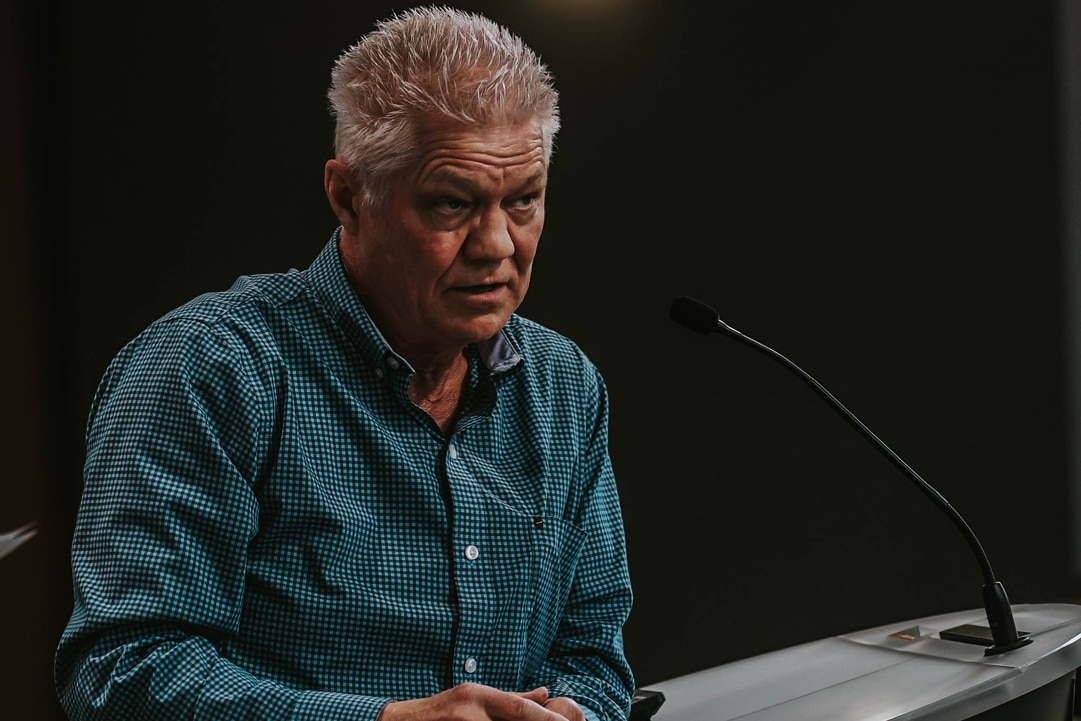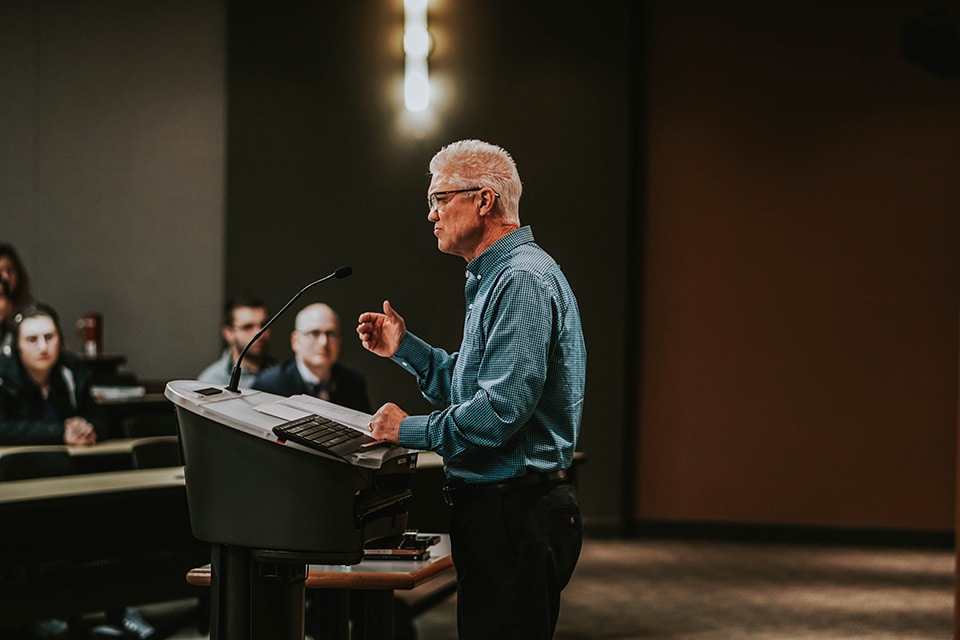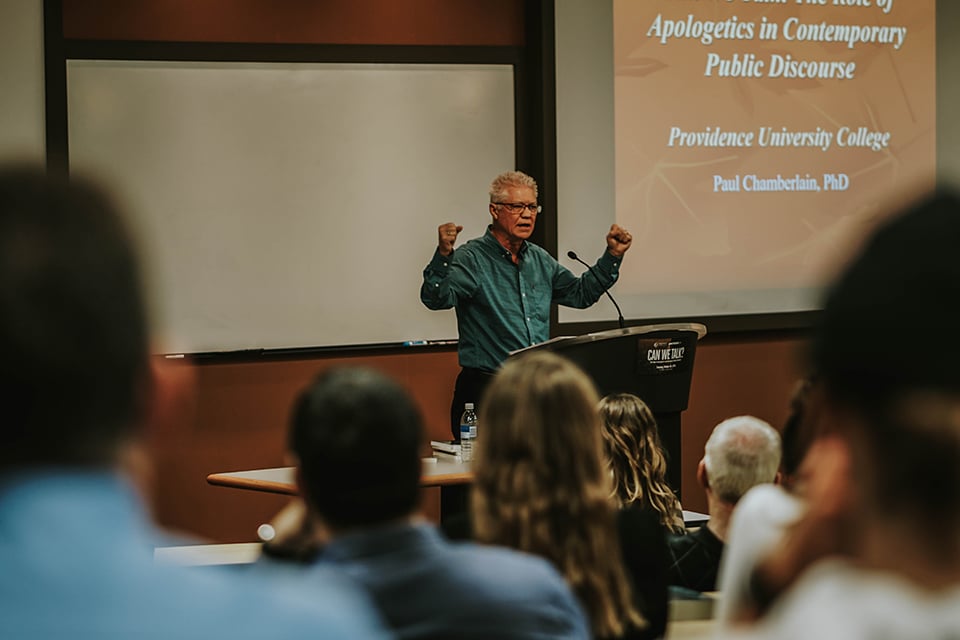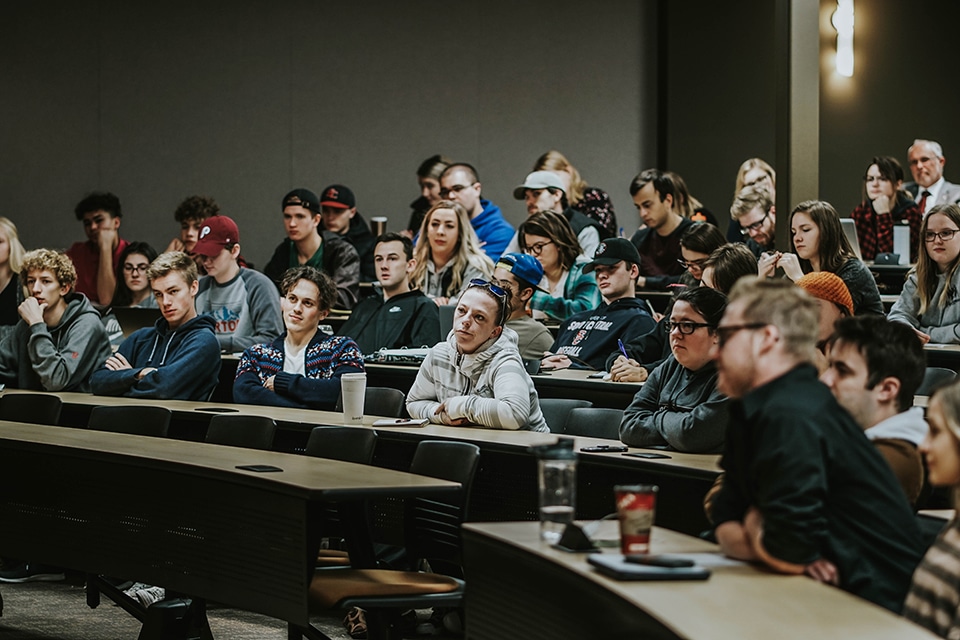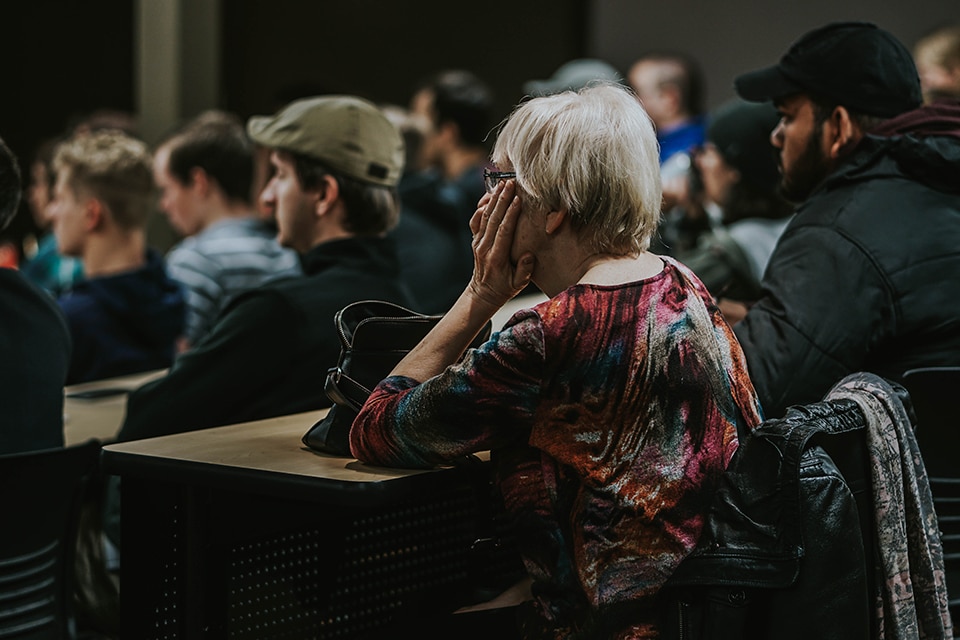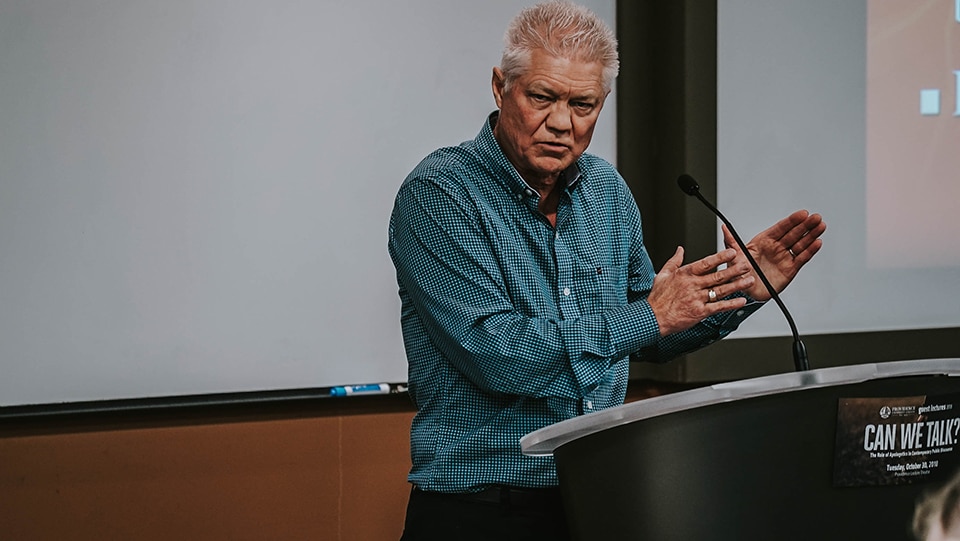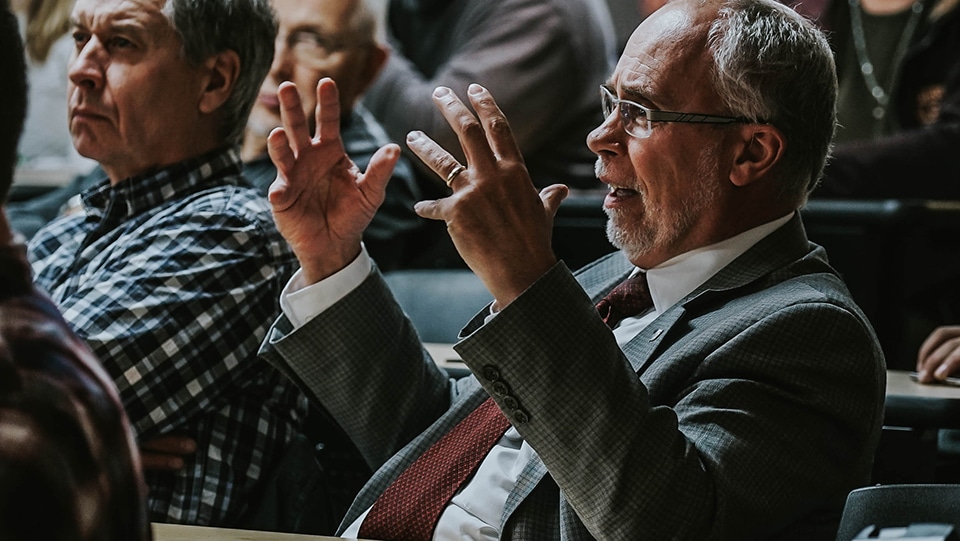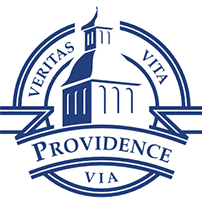Apologetics, said Dr. Paul Chamberlain near the beginning of his lecture, is a “funny, odd-sounding term.” Over the course of the 2018 Providence Guest Lectures he defined and described the character of apologetics, traced its resurgence and took questions from an appreciative audience in the lecture theatre on the Otterburne campus.
Dr. Chamberlain, Professor of Apologetics, Philosophy & Ethics and Director of the Institute of Christian Apologetics at Trinity Western University, presented his lecture, “Can We Talk? The Role of Apologetics in Contemporary Public Discourse,” to Providence students, faculty and staff, and members of the general public, on Tuesday, October 30.
The event, as moderator Dr. Nicholas Greco explained at the outset, was facilitated by the Public Scholarship Committee and made available at no cost to attendees.
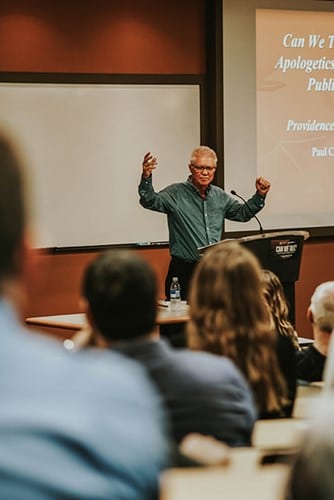 In the morning session Dr. Chamberlain underlined the importance of clearly defining apologetics and understanding its historical significance. “Apologetics has been a part of the Christian community almost as long as there’s been a Christian community,” he said. He also drew on the formative ponderings of his own experience: “I wonder if this whole thing is true,” and, “What if I’d been raised in a different home?”
In the morning session Dr. Chamberlain underlined the importance of clearly defining apologetics and understanding its historical significance. “Apologetics has been a part of the Christian community almost as long as there’s been a Christian community,” he said. He also drew on the formative ponderings of his own experience: “I wonder if this whole thing is true,” and, “What if I’d been raised in a different home?”
He then discussed the traditional approaches of “evidential” and “presuppositional” apologetics and suggested “ambassadorial,” “dialogical” and “community-centred” approaches might be more effective in contemporary life.
After lunch Dr. Chamberlain presented some common dilemmas faced by apologists, including repeated slogans, straw man fallacies, the temptation to bend the truth in the service of apologetics, itself, and weaponized rhetoric.
“Is it possible to use language as an act of violence?” he asked. “This is something [apologists] need to be thinking about.”
Zeroing in on the current relevance of the apologetic discipline, Dr. Chamberlain pointed to publishing, training centres, conferences and the internet as forums that have contributed to apologetics’ recent resurgence. He also noted several issues currently challenging apologetics: suspicion of truth, the presence of evil and suffering, the “God of the Old Testament” narrative and the position that Christianity is dangerous.
Apologetics, he emphasized, should be person-centred and conducted in the context of community. “We need to be praying at the same time,” he added. “Then we need to make the best case and live it out.”
Having completed his undergraduate studies at Providence, Dr. Chamberlain also recalled the impact the institution had on his education and eventual career. He highlighted the influences of Steve Masterson and Dr. Jon Bonk and singled out Dr. Al Hiebert, who was in attendance, and who he honoured as a “pivotal” teacher and mentor.
“The world of apologetics is dynamic,” he concluded. “It’s about as rewarding as anything could be.”

